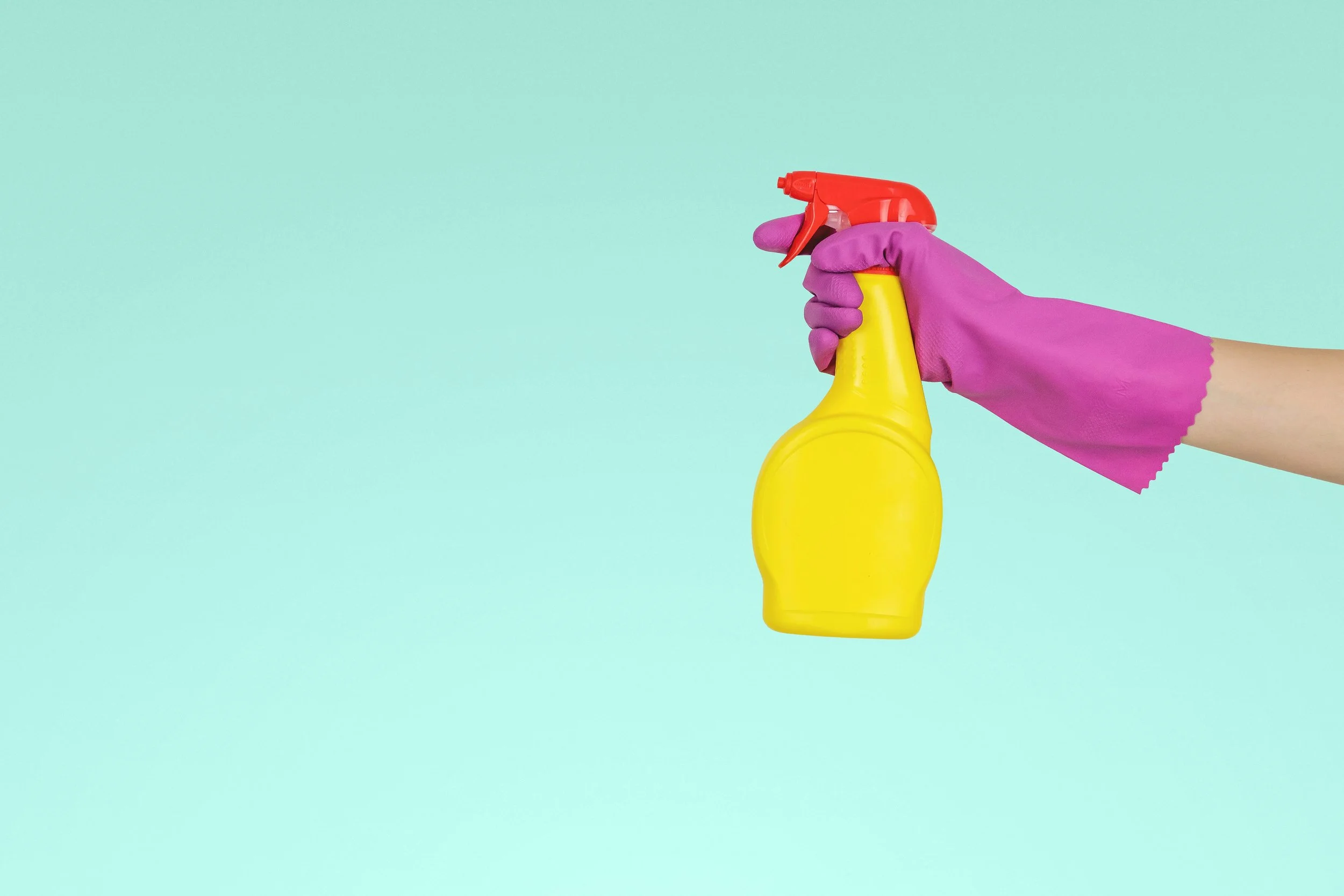Creating a Blissful Haven: Boosting Fertility Naturally and Embracing Serenity in Your Stress-Free Home
At Mighty River Wellness, we understand the profound impact of a healthy, harmonious, and stress-free home environment on fertility and overall well-being. In our latest blog post, we delve into the art of creating a sanctuary that prepares the palace for a new baby. Discover effective strategies and practical tips on boosting fertility naturally, including the power of acupuncture for fertility. From incorporating calming rituals to optimizing nutrition and promoting relaxation techniques, we provide invaluable insights to help you cultivate a serene atmosphere where your dreams of conceiving and welcoming a precious bundle of joy can flourish. Join us as we explore how to transform your home into a haven of tranquility and positive energy, setting the stage for a joyful journey towards parenthood.
Creating A Healthy House
Endocrine disruptors are chemicals that can interfere with the body's endocrine system and disrupt hormone balance, potentially leading to a range of health problems, including reproductive health issues. Many common household cleaning products contain chemicals that are known endocrine disruptors and can be harmful to reproductive health. For example, certain chemicals found in cleaning products, such as phthalates, can decrease sperm quality and quantity in men. In women, exposure to these chemicals can lead to irregular menstrual cycles and reduced fertility.
One class of chemicals that are particularly concerning are xenoestrogens, which mimic the hormone estrogen in the body and disrupt the body's natural hormonal balance. Research by Dr. Joseph Pizzorno and Shawna Swan, in her book The Countdown, highlights the dangers of xenoestrogens in household products and their potential impact on reproductive health. They both explain that exposure to these chemicals during critical periods of development, such as in utero or during early childhood, can have long-lasting effects on reproductive health.
In a study by Dr. Swan and her team, they found that exposure to chemicals commonly found in household cleaning products was linked to decreased fertility and reproductive problems in both men and women. The study analyzed data from over 300 couples and found that those with higher levels of exposure to certain chemicals had a reduced ability to conceive. The study also found that exposure to these chemicals was linked to a range of other health problems, including obesity and diabetes.
It is important to be aware of the potential dangers of endocrine disruptors in household cleaning products and take steps to reduce exposure. Choosing cleaning products that are free of harmful chemicals, such as phthalates and xenoestrogens, can help protect reproductive health. Additionally, avoiding products that are heavily scented or contain synthetic fragrances can also help reduce exposure to harmful chemicals.
List Of Common Xenoestrogens
Bisphenol A (BPA): BPA is commonly found in plastic containers, food packaging, and the lining of canned goods. Exposure to BPA has been linked to decreased sperm quality and quantity in men, as well as increased risk of polycystic ovary syndrome (PCOS) and menstrual irregularities in women. BPA can mimic estrogen in the body and disrupt normal hormonal balance.
Phthalates: Phthalates are commonly found in plastics, vinyl, and synthetic fragrances. Exposure to phthalates has been linked to reduced sperm quality and quantity in men, as well as reduced fertility and menstrual irregularities in women. Phthalates can also disrupt normal hormonal balance by mimicking estrogen in the body.
Parabens: Parabens are commonly found in personal care products such as shampoos, lotions, and makeup. Exposure to parabens has been linked to decreased sperm quality and quantity in men, as well as reduced fertility and menstrual irregularities in women. Parabens can also disrupt normal hormonal balance by mimicking estrogen in the body.
Triclosan: Triclosan is commonly found in antibacterial soaps and other personal care products. Exposure to triclosan has been linked to reduced fertility in women, as well as decreased sperm quality and quantity in men. Triclosan can disrupt normal hormonal balance by mimicking estrogen in the body.
How To Identify These Products
To identify products that are free of these chemicals, there are a few things to look for. First, look for products that are labeled as "phthalate-free," "BPA-free," or "paraben-free." You can also look for products that are certified by third-party organizations such as the Environmental Working Group (EWG) or the Safer Choice program.
There are also apps and websites that can help you identify products that are free of xenoestrogens and other harmful chemicals. Some popular options include:
EWG Healthy Living: This app allows you to scan the barcode of a product and receive a rating based on its potential health risks. You can also search for products by category, such as cleaning products or personal care items. (Apple Store / Google Store)
Think Dirty: This app allows you to scan the barcode of a product or search for products by name and receive a rating based on their potential health risks. You can also browse products by category and filter results by specific ingredients. (Apple Store / Google Store)
GoodGuide: This website and app provide ratings and information on the health, environmental, and social impacts of various products. You can search for products by category, brand, or specific ingredients. (Apple Store / Google Store)
Beauty And Haircare Products
Many beauty products marketed towards women contain chemicals that can interfere with reproductive health and act as fertility blockers. One example is hair dye, which often contains chemicals such as ammonia and PPD that can be harmful to fertility. A study published in the International Journal of Cancer found that women who used hair dye had a higher risk of developing breast cancer, which can also affect fertility. Other hair products such as relaxers and keratin treatments can also contain harmful chemicals that may have a negative impact on fertility.
Makeup products are also a potential source of fertility blockers. Many makeup products contain phthalates, which are a class of chemicals that can disrupt normal hormonal balance and interfere with reproductive processes. Phthalates are commonly found in products such as nail polish, lipstick, and fragrances. In a study published in the journal Fertility and Sterility, researchers found that women with higher levels of phthalates in their urine had a reduced ability to conceive.
It is important to be mindful of the products we use on our bodies and seek out alternatives that are free of harmful chemicals. Choosing organic or natural beauty products and reading product labels carefully can help reduce exposure to fertility blockers. Additionally, it may be helpful to consult with a healthcare provider or fertility specialist to discuss ways to optimize reproductive health and reduce exposure to harmful chemicals.
Removing Toxic Relationships
Toxic relationships can have a significant impact on your physical and emotional health, as well as your chances of conceiving. It's important to take steps to protect yourself and create a supportive and healthy environment for yourself and your potential pregnancy.
Setting boundaries is an important step towards protecting yourself from toxic relationships. This may involve communicating your needs and expectations clearly and assertively, and being willing to say no when necessary. For example, you may need to set boundaries around the amount of time you spend with a toxic person, or around the topics of conversation that are off-limits. It's important to remember that setting boundaries is not selfish, but rather a necessary step towards protecting your health and well-being.
Communicating your needs and expectations is another important step towards creating a supportive environment. This may involve expressing your feelings and concerns in a calm and respectful manner, and being willing to listen to the other person's perspective as well. It's important to be clear about what you need from the other person in order to feel supported and valued.
Seeking support from a therapist or support group can also be helpful when dealing with toxic relationships. A therapist can provide you with tools and strategies for coping with stress, setting boundaries, and communicating effectively. A support group can provide you with a safe and supportive community of people who understand what you're going through and can offer encouragement and guidance.
Research has shown that exposure to chronic stress can have a negative impact on reproductive health. Chronic stress can lead to increased levels of cortisol, which can disrupt the hormonal balance necessary for ovulation and conception. Additionally, chronic stress can lead to inflammation, which can impact the health of the reproductive organs and decrease fertility.
-
References
Pizzorno, J., & Murray, M. T. (2013). Textbook of natural medicine. Elsevier Health Sciences.
Swan, S. H. (2020). Count down: How our modern world is threatening sperm counts, altering male and female reproductive development, and imperiling the future of the human race. Simon and Schuster.
Swan, S. H., Sathyanarayana, S., Barrett, E. S., Janssen, S., Liu, F., Nguyen, R. H., ... & Redmon, J. B. (2017). First trimester phthalate exposure and anogenital distance in newborns. Human reproduction, 32(1), 103-111.




